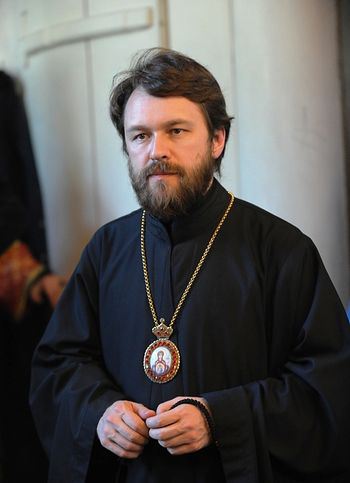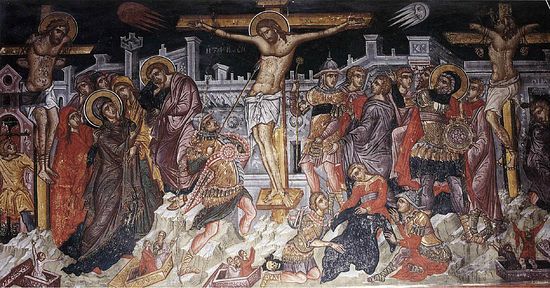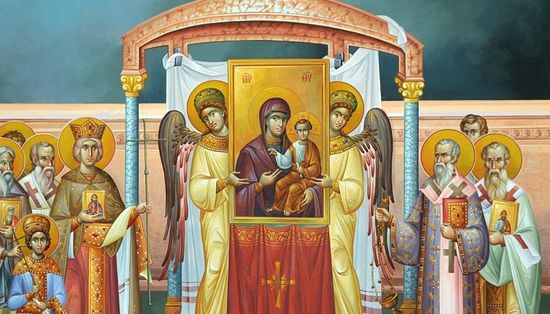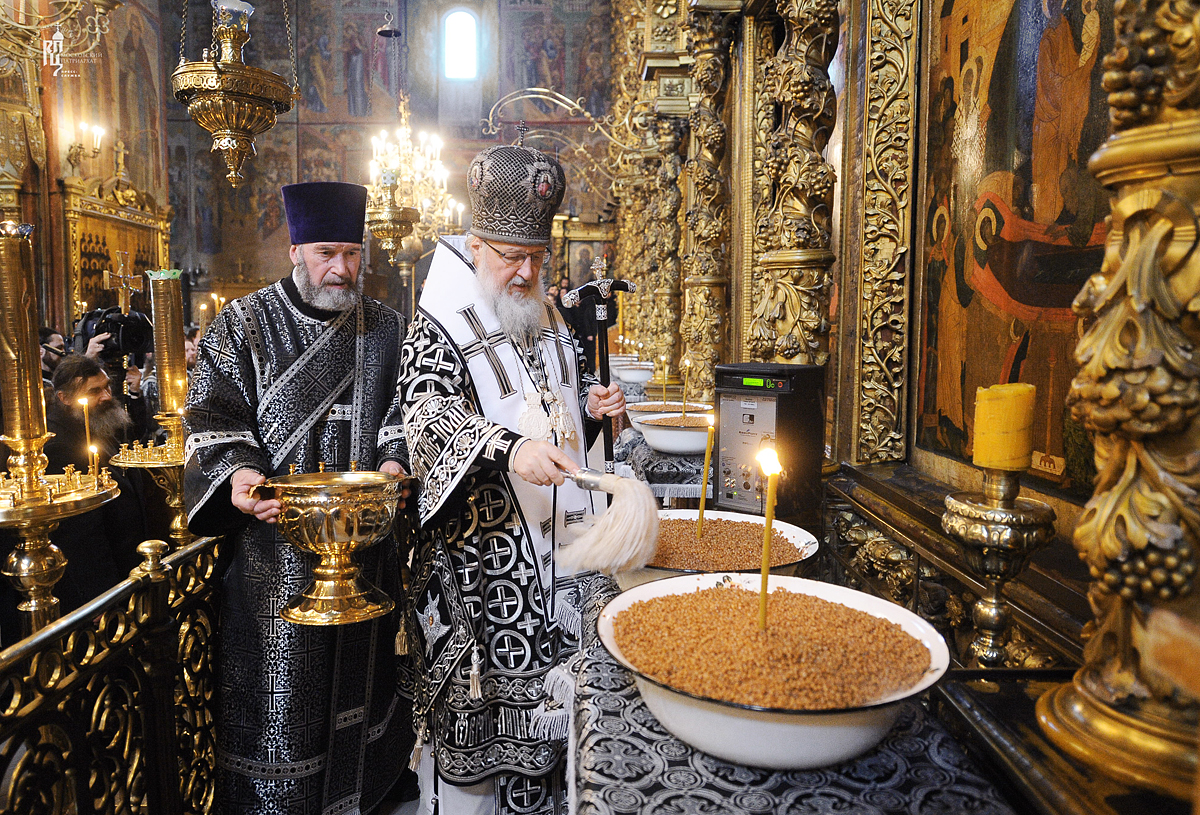Theology
Lecture delivered by Metropolitan Hilarion of Volokolamsk at Uppsala University
20. May 2014 - 10:49
On 14 May 2014, Metropolitan Hilarion of Volokolamsk, chairman of the Moscow Patriarchate’s Department for External Church Relations, chairman of the Synodal Biblical and Theological Commission and rector of the Ss Cyril and Methodius Theological Institute for Post-Graduate Studies, delivered a lecture at the Faculty of Theology of the Uppsala University, Sweden.
The Church Tradition and Scientific Theology
“To think free is great; but to think right is greater”
Thomas Thorild
With these words of the famous Swedish poet and philosopher, I would like to begin my presentation which contains in its title two antithetical concepts.
Today's Saint: Theophan the Recluse - March 18/31 /
31. March 2014 - 15:05 SAINT THEOPHAN THE RECLUSE (1815–1894) was one of the most prolific and beloved spiritual writers of nineteenth-century Russia. His works, which comprise over twenty volumes, include such classics as The Path to Salvation and A Commentary on Psalm 118, as well as many volumes of letters. Although he lived the last twenty-eight years of his life as a hermit, his impact on his homeland was immense. His articles appeared in the popular spiritual journals of his time, his books were in great demand, and he personally replied to an average of thirty letters daily.
SAINT THEOPHAN THE RECLUSE (1815–1894) was one of the most prolific and beloved spiritual writers of nineteenth-century Russia. His works, which comprise over twenty volumes, include such classics as The Path to Salvation and A Commentary on Psalm 118, as well as many volumes of letters. Although he lived the last twenty-eight years of his life as a hermit, his impact on his homeland was immense. His articles appeared in the popular spiritual journals of his time, his books were in great demand, and he personally replied to an average of thirty letters daily.
In the present book, Thoughts for Each Day of the Year, St. Theophan takes us through the yearly cycle of Gospel and Epistle readings, humbly and reverently offering us brief but powerful daily meditations on the word of God. He also addresses the problems of his day—lack of faith, coldness of heart, trust in the rational mind rather than in the revealed Truth of God—which are problems of our day as well.
Saint John of the Ladder (Climacus)
31. March 2014 - 11:42 St. John Climacus is honored by the Church as a great ascetic and as the author of a remarkable work entitled, The Ladder of Divine Ascent, and therefore he has been named “Climacus,” or “of the Ladder.”
St. John Climacus is honored by the Church as a great ascetic and as the author of a remarkable work entitled, The Ladder of Divine Ascent, and therefore he has been named “Climacus,” or “of the Ladder.”
There has been very little information preserved about his origin. Tradition tells us that he was born in around the year 570, and was the son of Sts. Xenophon and Maria, who are commemorated on January 26/February 28. St. John came to the monastery on Mt. Sinai at age sixteen. Abba Martyrius became his spiritual father and mentor. After four years of living on Mt. Sinai, John was tonsured a monk. One of the fathers present at his tonsure foretold that John would become a great luminary of Christ's Church. St. John labored in asceticism for nineteen years in obedience to his spiritual father. After the death of Abba Martyrius, St. John chose the life of reclusion, departing to a desert place called Thola, where he lived forty years in silence, fasting, prayer, and repentant tears. It is not by chance that St. John speaks so much of repentant tears in The Ladder. "As fire burns and destroys dead wood, so do pure tears cleanse all impurity, both inwardly and outwardly." His prayer was strong and effective—this can be seen in the following example of the great ascetic's life.
Third Sunday: Veneration of the Cross
25. March 2014 - 15:21 Before us is the Cross. This is the Cross of Christ. But on Golgotha there were two more crosses: Christ in the middle and on either side of Him were crucified two thieves. Christ on the Cross performed the sacrifice of redemption for the whole world. But what brought those crucified with Him to these crosses? Their crimes—after all, they were thieves.
Before us is the Cross. This is the Cross of Christ. But on Golgotha there were two more crosses: Christ in the middle and on either side of Him were crucified two thieves. Christ on the Cross performed the sacrifice of redemption for the whole world. But what brought those crucified with Him to these crosses? Their crimes—after all, they were thieves.
The triumph of Jesus Christ is the triumph of Orthodoxy
11. March 2014 - 9:43 The first Sunday of Great Lent is celebrated as the Triumph of Orthodoxy. This is connected with the victory of the iconodules (those who supported the veneration of sacred images) over the iconoclasts (those who opposed their veneration).
The first Sunday of Great Lent is celebrated as the Triumph of Orthodoxy. This is connected with the victory of the iconodules (those who supported the veneration of sacred images) over the iconoclasts (those who opposed their veneration).
Friday of the first week of the Great Lent
7. March 2014 - 9:45 Let no one be deceitful, let no one harbor anger, let no one nourish poison in his soul,
Let no one be deceitful, let no one harbor anger, let no one nourish poison in his soul,
so that he might not receive Communion unto condemnation.
—St. John Chrysostom
On Friday of the first week of Great Lent, after the Vespers service with the Liturgy of the Presanctified Gifts, a moleben canon is sung in church to the Holy Greatmartyr Theodore the Tyro and koliva is blessed in his honor—boiled wheat or rice with honey. This celebration was instituted after a certain event in Church history.

